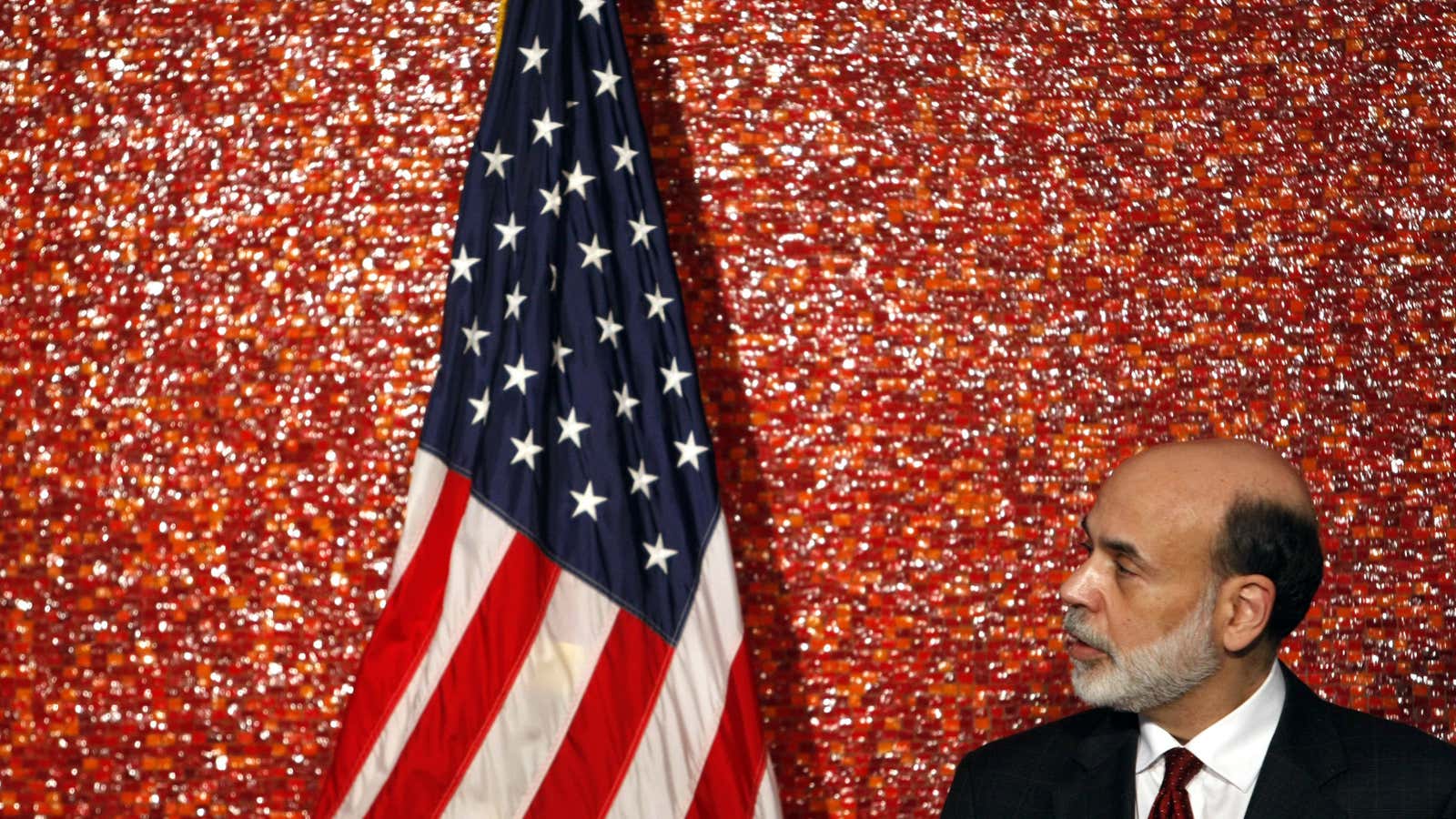Ben Bernanke has publicly broken ranks with the Republican party.
In one of the more revealing passages of his just-published book The Courage to Act, the former chairman of the US Federal Reserve lays out his experience with Republican lawmakers during the twin financial and economic crises that dominated his term as the head of the world’s most important central bank. Continual run-ins with hard-right Republicans—such as noted Fed critic Ron Paul, the former Texas congressman—gradually pushed him away from the party that first put him in charge of the Fed in 2006. (He was nominated for the job by president George W. Bush, for whom Bernanke served as head of the White House Council of Economic Advisors.)
“[T]he increasing hostility of the Republicans to the Fed and to me personally troubled me, particularly since I had been appointed by a Republican president who had supported our actions during the crisis. I tried to listen carefully and accept thoughtful criticisms. But it seemed to me that the crisis had helped to radicalize large parts of the Republican Party,” Bernanke writes on page 432.
While arguing that Democrats “suffered their own delusions, especially on the far left,” the former Princeton economics professor said he had “lost patience with Republicans’ susceptibility to the know-nothing-ism of the far right. I didn’t leave the Republican Party. I felt that the party left me.”
He later concludes: “I view myself now as a moderate independent, and I think that’s where I’ll stay.”
In theory, monetary policy making is supposed to be somewhat remote from politics. That’s by design. The thinking is that the central bank needs insulation from political pressures to manipulate monetary policy for political reasons. But as Bernanke found out during the crisis, it’s hard to stay completely above the fray in Washington.




